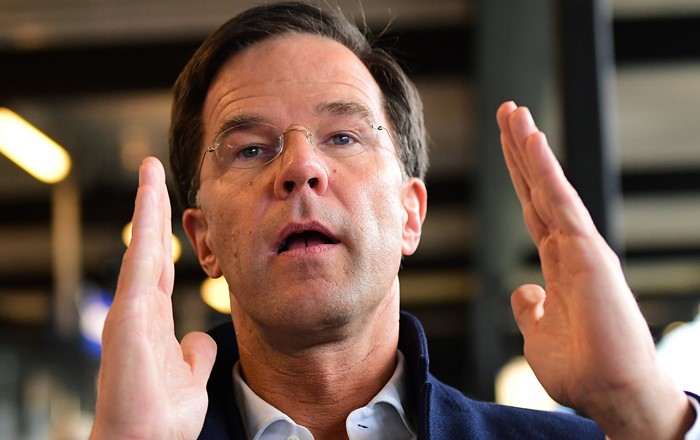Dutch Prime Minister Mark Rutte has said that sanctions imposed on the Netherlands by Turkey following a diplomatic crisis with the country were “not too bad,” but they were inappropriate as his country had more reason to be angry.
The Turkish government on Monday announced a series of political sanctions against the Netherlands over its refusal to allow two Turkish ministers to campaign there, including halting high-level political discussions between the two countries and closing Turkish airspace to Dutch diplomats. Other sanctions bar the Dutch ambassador entry back into Turkey and advise Parliament to withdraw from a Dutch-Turkish friendship group.
“I continue to find it bizarre that in Turkey they’re talking about sanctions when you see that we have reasons to be very angry about what happened this weekend,” Rutte said.
Tensions between the two countries, a dramatic escalation of Turkey’s row with EU states, increased on Saturday when the Netherlands blocked two Turkish ministers from speaking at political rallies and the Turkish president, Recep Tayyip Erdoğan, twice referred to the Dutch government as “Nazis.”
Turkey’s relations with Germany, Austria and the Netherlands have been strained over these countries’ refusal to allow Turkish government officials to hold rallies there ahead of a public referendum in Turkey in April.
Turkey will hold a referendum on April 16 on a constitutional reform package that will introduce an executive presidency in the country if approved.
Germany, Austria and the Netherlands have canceled scheduled events to be participated in by Turkish ministers, usually out of security concerns.
A large number of Turkish citizens or people of Turkish origin live in these countries, and Turkish citizens living abroad have the right to vote in elections and referenda.

